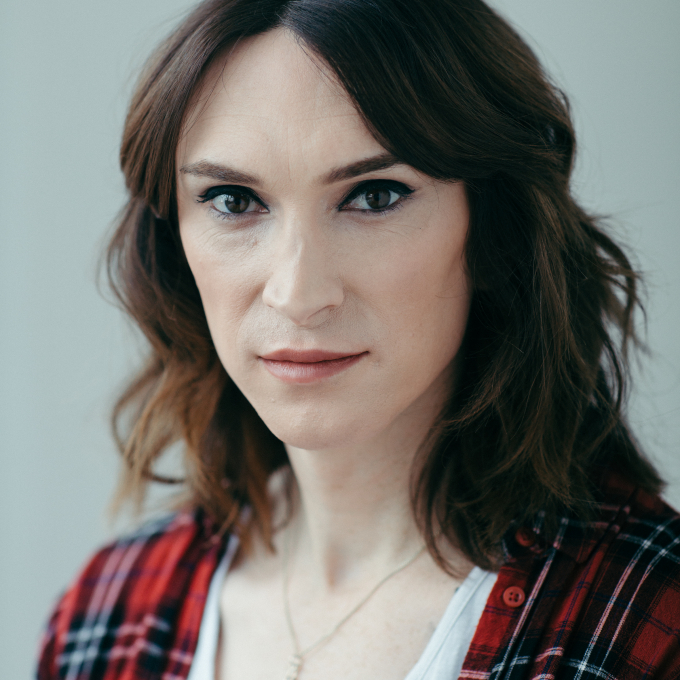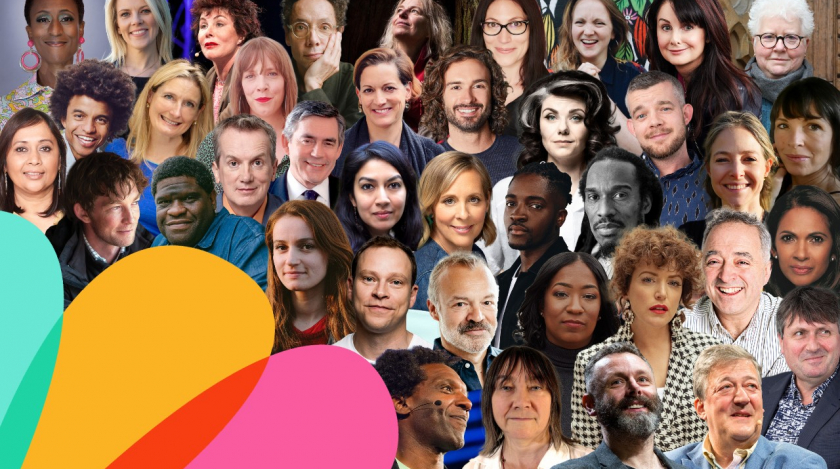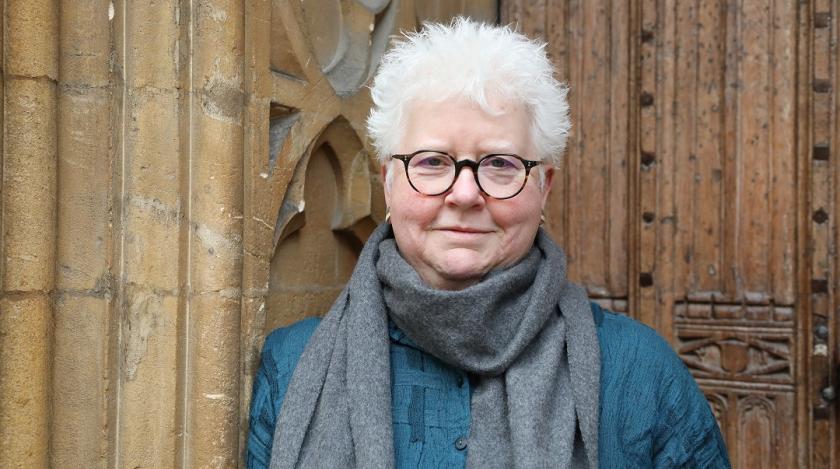
- ©
- Sophia Springs
Juno Dawson
- Barnsley, UK
Biography
Juno Dawson grew up in West Yorkshire and now lives in Brighton. She worked for some years as a teacher, specialising in PSHCE and behaviour, and as a journalist, interviewing bands including Atomic Kitten and Steps and writing a weekly serial for a Brighton newspaper. She contributes regularly to Attitude Magazine, Glamour Magazine, and The Guardian, as well as broadcast news items on BBC Woman’s Hour, Front Row, ITV News, Channel 5 News and This Morning. In 2015 Dawson announced her transition, having previously lived as a gay man. She is a ‘School Role Model’ for Stonewall and works with the charity First Story, which runs writing and story-telling workshops in underprivileged schools.
She has published numerous fiction and non-fiction books for young adults, and won The Book People’s ‘Queen of Teen’ award in 2014 for her early titles Hollow Pike (2012) and Say Her Name (2013). Many of her books have been concerned with the social issues affecting young adults today, including Being a Boy (2013), on the subject of puberty, This Book is Gay (2014), on being young and LGBTQ+, and Mind Your Head (2016), a guide to mental health for young people. Her memoir The Gender Games (2017) was her first book for an adult audience and was published to much acclaim. Dawson’s recent novels include Clean (2018) and Meat Market (2019). She has also edited an anthology of LGBTQ+ writing, Proud, published in 2019.
Critical perspective
The opening ‘lesson’ of Juno Dawson’s guide to gender and sexuality, This Book is Gay (2014), reads as follows:
Sometimes men fancy men.
Sometimes women fancy women.
Sometimes women fancy men and women.
Sometimes men fancy women and men.
Sometimes people don’t fancy anyone.
Sometimes a man might want to be a woman.
Sometimes a woman might want to be a man.
This piece of text, followed by the caveat that the book will subsequently to go ‘into a bit more depth’, nonetheless feels emblematic of the way that depth often functions in Dawson’s writing, commenting upon social issues with a simple finesse; a light touch. There’s an economy to the casual poetic devices at play in this list, where the anaphoric (‘Sometimes’) suggests the aphoristic, repetition and parallelism suggesting a proverbial truth about different sexualities as they exist on a spectrum, amorphous and variable. The ‘sometimes-this’ and ‘sometimes-that’ are not necessarily discrete identifications, hermetically sealing LGBTQ and more from one another, but could after all happen in the space of one person’s experience, as Dawson’s own biography bears out, living as a gay man by the name of James until transitioning in 2015.
Shorn of its context, this kind of mnemonic or simplified writing might risk sounding didactic, or expressing truths that seem self-evident. But this book, like many of Dawson’s others, both fiction and non-fiction, is aimed expressly at young adults, de-mystifying the way issues of gender and sexuality are distorted by the adult discourses of the dominant culture. The voice in these works is not unlike that of an agony aunt, or rather a cool and queer older sibling literate both in the numerous issues that surround growing up LGBTQ+ as well as the lingo and speech patterns that make such insights accessible to a young readership. Even Dawson’s memoir, The Gender Games (2017), her first aimed at adults, possesses ‘a breezy, confident style [that] can seem aimed at teenagers’ in the words of trans poet and scholar Steph Burt (‘Trans 101’, Times Literary Supplement.) Taken as a whole, however, Dawson’s work seeks to debunk any hard-and-fast or value-laden distinction between the ‘adult’ and the ‘young’. In that same memoir she recalls developing ‘a taste’ for the young adult genre during her time as a teacher. Having read ‘Philip Pullman’s His Dark Materials trilogy’, she ‘was well aware that some of the most subversive, imaginative and intelligent books on the market were deemed ‘children’s books’.'
The attitude that this categorisation harbours speaks to the departure point of young adult literary studies, a discipline comprised by scholars seeking to resist the rigidity of this boundary, one upheld by those who wish ‘to police this literary border’ (Richard Flynn, ‘Boundary Issues’, Children’s Literature Association Quarterly) Dawson’s work seems itself a manifesto for this recuperation of the young adult form from this inferior position, for reasons that are both personal and political. Even before she started publishing young adult fiction, her ‘imagination had been too much to contain […] always inventing stories’ and ‘fantasy worlds that [had] me as a female character’, and ‘it never occurred to me to write from a male perspective.’ This recollection of childhood and adolescent composition recalls queer theory’s accounts of the imaginative as a political refuge, such as Jose Esteban Munoz’s statement that queerness is a future-tense, an ‘ideality’ and a dream of ‘other ways of being in the world’ (Cruising Utopia), which Dawson has proceeded to put into creative practice in her writing. In her review of Dawson’s memoir, Steph Burt corroborates the vitality of fantasy and creation in her own experience of being transgender, writing that ‘I did this for thirty years, mostly in published verse; it could feel like a code no one bothered to crack’.
Indeed, in so far as Dawson’s literary play with fantasy constitutes a ‘code’, it is there to be cracked. Her imagining through invented characters of new possibilities in gender and subjectivity acts not merely as a personal catharsis but as an extension of those possibilities to new readers, diversifying the young adult genre from within and redressing ‘how few LGBTQ+ characters there were’ in the novels Dawson was reading at the start of her writing career. In this regard Dawson’s work is absolutely of the moment, dovetailing with the increased calls for greater diversity and intersectionality in literatures of all genres and comparable to other such pioneers of representation in young adult fiction like Cassandra Clare and Patrick Ness. In these novels the radicalism of inclusion resides precisely in its uneventfulness, the sense that a character’s sexuality is secondary to the other ways they are defined by the demands of plot and genre.
Whilst Dawson has consistently included such characters ever since her horror debut Hollow Pike (2012), which features bisexual teenagers at its centre, she also nuances what cultural inclusion might entail besides explicit characterisations. In her memoir, Dawson refers to Elsa, the female protagonist of Disney’s mega-hit film Frozen (2013), as ‘very trans’, locating in this character an essence of trans-ness which suggests that ‘children’s’ popular culture – even products as mainstream as Disney films – might be available to queer readings, speaking to and for young LGBTQ+ audiences without spelling out direct similarities. Dawson’s fiction contains a similar mining of popular culture to such ends, describing how she found the voice for Felicity, a character from her novel Margot and Me (2015) ‘by immersing myself in 90s culture and looking back at Cher Horowitz in Clueless’, the ‘intelligent’ yet ‘sheltered and innocent’ lead of a film which is itself a loose adolescent update of a literary forebear, Jane Austen’s Emma. This intertext can be felt palpably in the novel’s narration by Felicity, who mediates her experience of being moved to rural Wales through the aspirational glamour of the silver screen, imagining the novel’s plot as a ‘film in which a cosmopolitan city girl (with A+ fashion sense, natch) has to go live on a farm’. It seems highly conceivable that one day Dawson’s own work will act as just this kind of cultural fodder for teenagers’ allusive imaginations; perhaps it already is.
Jack Parlett, 2018


